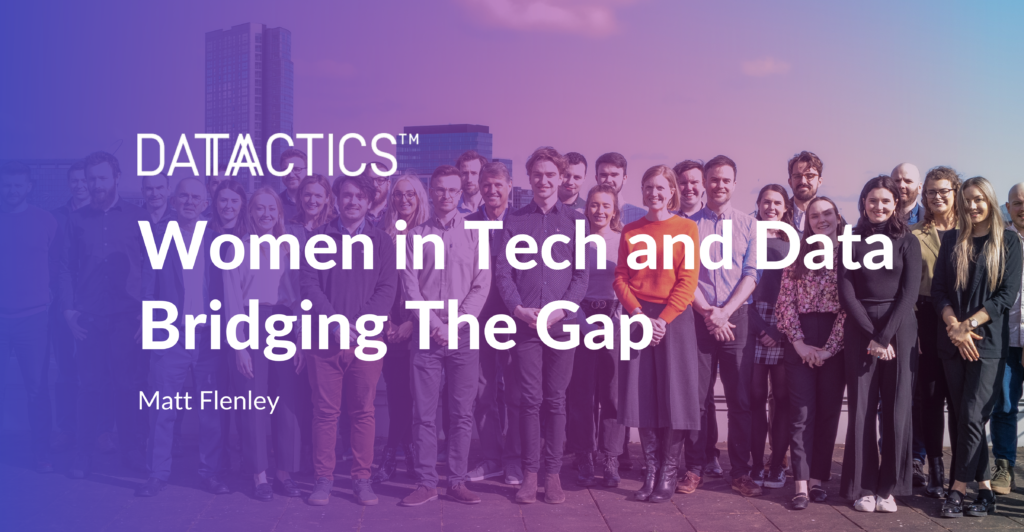The recent return to in-market visits and events has reignited a favourite pastime, that of mid-air reading, much to the delight of the pile of half-read books on my bedside table!

In reading the very fine ‘The Making of Biblical Womanhood’, I was particularly struck by a quote from Jean-Jacques Rousseau.
The author, Beth Allison Barr, notes:
“In his famous text Emile, (Rousseau) expounded his philosophy of education for women, arguing that “the search for abstract and speculative truths, for principles and axioms in science, for all that tends to wide generalization, is beyond a woman’s grasp; their studies should be thoroughly practical.”
Women, according to Rousseau, are simply not as smart as men and therefore should not bother with more advanced learning. They are better suited to domestic work.”
Working in the tech and data industry I’m all too aware that while we have growing numbers of champions and communities promoting and celebrating women, we are still at a woeful proportion of representation . The girls who excel at maths and language in school seem to evaporate by the time they’re choosing subjects for degree level, and the percentage of women going on to study computer science or become software developers seems fewer.
This begs the question – why?
In my day to day life it never ceases to amaze me how much women feel the pressure to perform both for themselves and also on behalf of their entire gender. How often they have been the sole representative in otherwise all-male teams of interviewers or panellists, tech founders or VC investors.
Adding to this has been the recent recounting by colleagues of mine – in their mid-20s – whose educational experience had been to direct them towards careers in home-making or home economics, rather than tech and data.
At Datactics we hosted a Women in Tech event earlier this year, hearing from women employed in the tech industry locally (including three of our team) who told us of their career paths. Almost to a woman they told tales of needing to get a foot in the door, be taken seriously in a male dominated sector and studying alongside their work just to get a chance.
Unlike these data scientists, developers and sysadmins, I don’t have a technical role, so I was curious and asked some of my male colleagues of their experiences in getting into computing, IT and data roles. Conversely, they had nearly all fallen into their jobs through benign encouragement, or an expectation that as bright boys, good at maths, it’s just where they’d end up.
What else is there to make of two sets of highly capable, numerate and analytical people, to whom one part is given all the opportunities by default, and from whom such opportunities are denied? The bias must be overcome.
When we talk about addressing gender biases in tech, it’s about fundamentally overhauling this mindset at every stage of a child’s development into and through their teenage years and early adulthood, and then into their careers.
What can any of us do?
- Challenge lazy assumptions whenever they are made. If you hear something like Rousseau’s quote being jokingly or seriously discussed, throw your weight behind countering it.
- Take opportunities to go into schools and share the career highlights of your own women in technology (as we did recently, and will continue to do).
- Become an ally or advocate for your local Women in Tech meet-up scene and create networking opportunities. Strive for achieving a situation where allies and advocates are no longer needed because the balance has been restored.
- Look honestly at your gender split at your workplace and ask yourself what you’re going to do to reach gender equality. At Datactics we use flexible working, earn-as-you-learn and training opportunities to remove some of the barriers that many women find to starting or maintaining a career in tech and data. And both men and women advocate tirelessly for women in tech roles.
Tonight, Roisin, Sinead, Paddy and Marcus will attend The Irish News award ceremony where Datactics is up for a Diversity, Equality and Inclusion award, alongside some excellent fellow home-grown companies. But we know we’re not perfect! We still have much to do. For instance, over the last six months or so we have drawn a large leadership group across specialism, function and people management, which strives to be better reflecting of the world around us but is still 2:1 male to female. The job of advocacy is never complete for as long as inequality remains present.
An industry which stands on the shoulders of Ada Lovelace should not – 150 years after her pioneering work – still be stacked against her heirs seeking to make a mark on the world.
And for more from Datactics, find us on Linkedin or Twitter.

